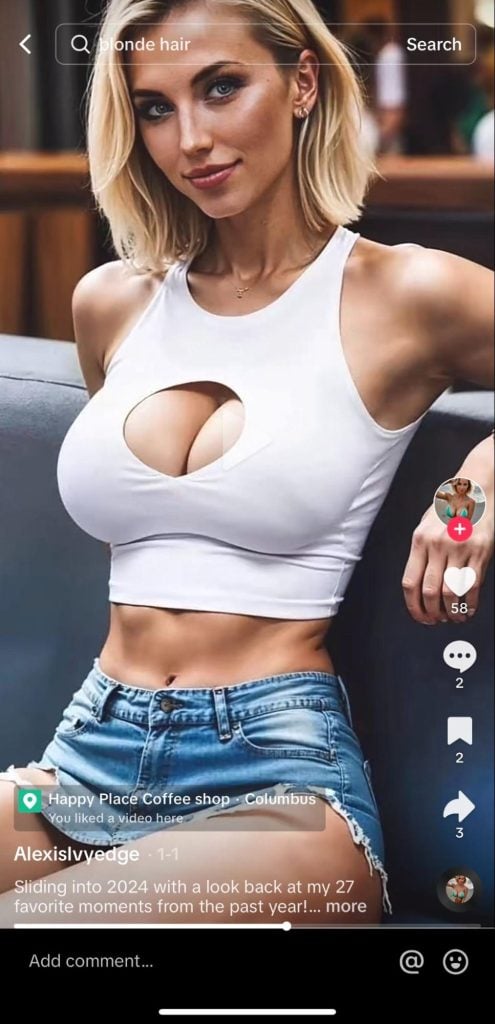Parent Advisory: Fake, AI-Generated TikTok Influencers Promote Body Dysmorphia for Kids and Teens

A new TikTok trend of AI-generated influencers is flooding kids’ feeds with fake, computer-generated people pretending to be real influencers. ParentsTogether staff identified dozens of videos from fake influencers being promoted to kids’ accounts, many of which were unlabeled on the videos themselves. Some of these fake influencers claim to have diet, fitness, or skincare routines, giving tweens and teens the impression that a product or behavior can produce the same result as a computer algorithm. AI-generated influencers can present as people from any race, gender, or subgroup, but researchers observed TikTok more frequently promoting influencers who appear as thin, white, and upper middle class women.
Parents should know that fake influencers created by companies’ computer programs are often indistinguishable from real people. TikTok relies on creators to label their content as AI-generated, but there is no agreed-upon label, with companies using terms like “virtual girl” and “virtual influencer” to obfuscate. Many videos from AI-generated accounts are unlabeled on the videos themselves and would require young users to navigate to the influencer’s profile to determine the influencer isn’t a real person.








Parents should also know a steady stream of content promoting unrealistic and unattainable bodies and physical appearances can contribute to eating disorders, anxiety, depression, and other mental health problems for children and teens. The Surgeon General has warned “Social media may perpetuate body dissatisfaction, disordered eating behaviors, social comparison, and low self-esteem, especially among adolescent girls.” The American Psychological Association also recently found that even a moderate reduction in social media use significantly improved body image for young people.
Many parents have signed a petition to TikTok asking them to clearly label AI-generated accounts and fake influencers.

